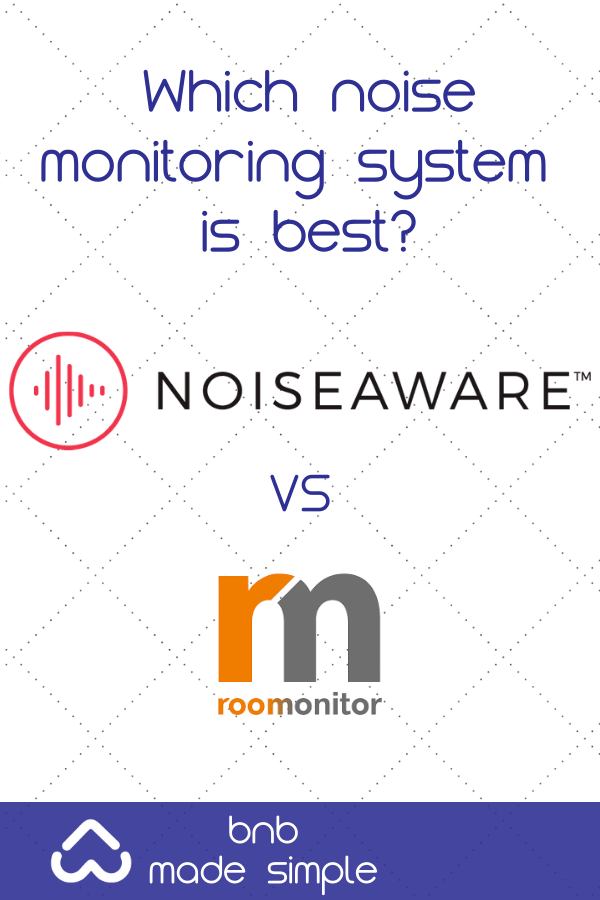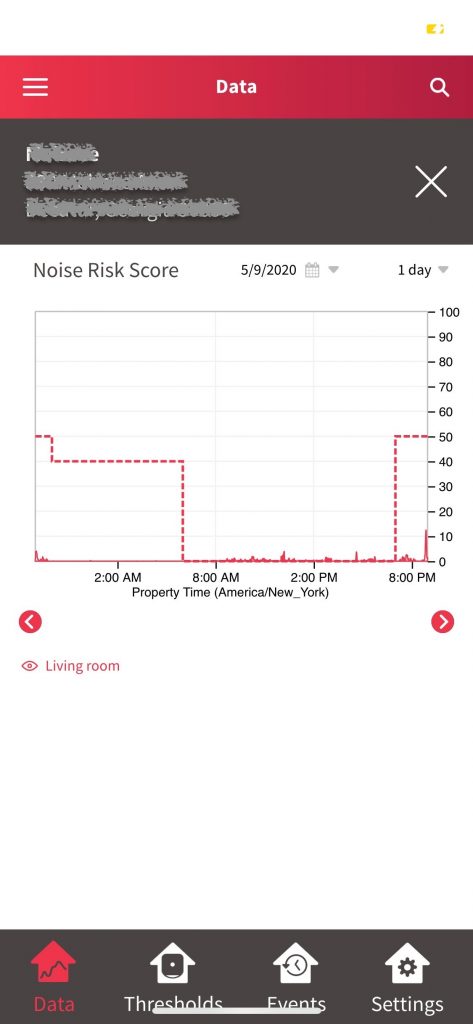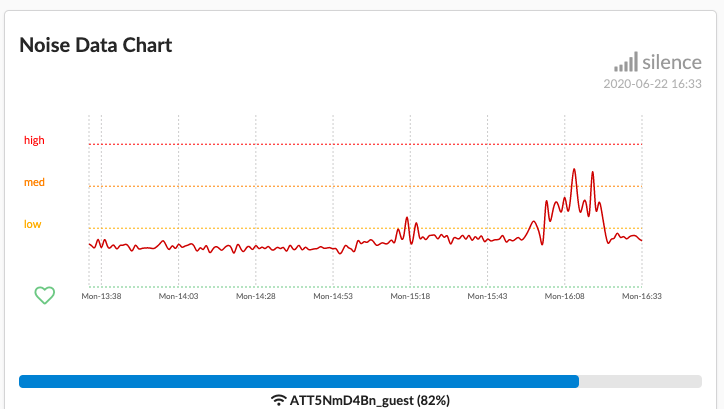
If you’ve been a host for any amount of time, you know that noise can be a big issue at an Airbnb.
Especially if you’re renting an entire house.
What’s that saying…while the cat’s away the mouse will play? So true. Disrespectful guests are drawn to whole-home rentals like moths to a flame. They know that it will be harder to police their actions when there isn’t a responsible party on-site.
That’s how you end up with the horror stories we’re all familiar with from the news – party house out of control, with dozens of unregistered guests and thousands of dollars in damages.
One of the best ways to prevent that from happening is to install a noise monitoring system in your properties.
As short-term rentals become more popular, these devices are becoming more mainstream. Contrary to a more traditional device, which would probably record the actual conversations being held in the unit (a no-go because of privacy concerns), these tools don’t record sound; they only track levels of noise. Once the noise level threshold you set is reach, an alert is triggered.
I have a couple of properties that really need this, so I’ve been playing around with 2 of the biggest names in the STR noise monitoring market right now – NoiseAware and Roomonitor. Here’s a brief summary of the pros and cons of both.
NoiseAware

NoiseAware is definitely the larger player in the industry right now. I was fortunate to be asked to be a part of a beta program in Atlanta, so I was given a NoiseAware device for free. However, if you were to just purchase a device from their store, an indoor device is going to set you back $200 ($100 for an outdoor device). In addition, they have a monthly subscription fee of $10 per property.
(As of this writing, Airbnb offers a 25% discount if you book through this link)
So you can see that NoiseAware can get a bit pricey. It does have an app, which is nice for managing on-the-go, but honestly the set up is not very intuitive. I’m a fairly tech-savvy person and it took me 2 phone calls to support to get everything set up.
Also, once a noise alert is triggered there is no way to get NoiseAware to tell the guest directly. It will send you a push notification, and then it’s up to you to reach out to the guest.
Roomonitor

Roomonitor is roughly the same price as NoiseAware ($165 per device and monthly subscription fee of $11). However, they are offering a bigger discount through Airbnb than NoiseAware is (As of this writing, you can get a pretty steep discount on both the device and subscription cost by booking through this link.)
Roomonitor does not have a mobile app; they say that their website is mobile-friendly, but honestly it’s not a very pleasant experience. Roomonitor is also equally as confusing to set up as NoiseAware is. Also, Roomonitor is a Spanish company, which means there may be some strong accents or language barriers if you call them in English (and you’ll have to call them, as their help knowledge base is pretty pitiful).
However, their agents are responsive and eager to help, and I was able to get my issue solved fairly quickly, despite the strong accent and over-explaining from the rep who talked to me.
The thing that, in my opinion, sets Roomonitor apart from NoiseAware is that it can call a guest directly to tell them if they’re being too loud.
If an alarm is triggered you can set it up to just text you (or someone else’s number you input), just call you, just call the guest, or contact both of you. As most noise triggers happen in the middle of the night, I find this feature very helpful – you can count on Roomonitor to call your guests for you so that you can keep sleeping through the night.
Based on that feature alone, as well as the far cheaper price you can currently get it for, I’d have to vote for Roomonitor as the tool that has the slight edge on NoiseAware. Honestly, neither tools are perfect, and I hope that a better one enters the market soon. But for now, this one will do the trick!
